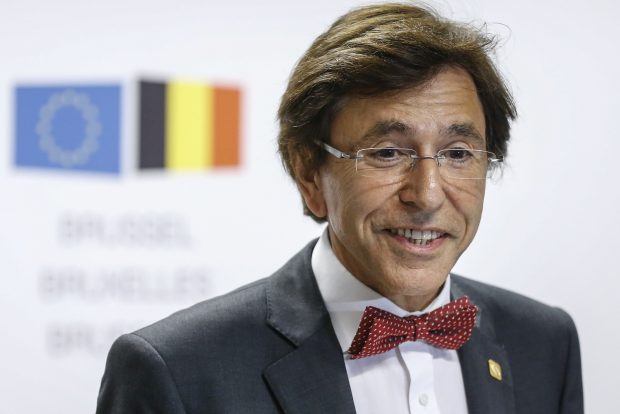I sometimes wonder if the EU has a death wish – that europhiles like myself, when admitted to the cause, are sworn into a secret society with the ultimate goal of destroying the European Project. For a decade or more, the EU has been veering from crisis to crisis – yet presented with an opportunity to choose calm before crisis, it goes with the latter.
Late on Friday, Canada’s trade minister – the former FT journalist Chrystia Freeland – declared that the trade agreement with the EU (the so-called Ceta) had failed. She’d been commuting between Brussels and Namur, the seat of Wallonia’s regional parliament, for a few days, trying to get the region’s left-wing government to support the trade deal. But her efforts, and those by others, were in vain. Wallonia didn’t budge. All the EU leaders that were in Brussels to seal the deal ahead of Justin Trudeau’s visit on Thursday, had to return back home empty-handed.
Reactions have been strong. A high-profile trade agreement has been blocked by a region that doesn’t represent more than 0.45 percent of all EU-Canada trade – or 2 percent of Belgium’s import from Canada. Behind Wallonia’s opposition stands the flamboyant and bow-tied gauche caviar, Elio di Rupo, possible the only rival to Boris Johnson for being Europe’s most Teflon-made politician. A former prime minister of Belgium, di Rupo has been seen as masterminding Wallonia’s opposition in order to win domestic political gains. It just proves, some say, that the Brits were right to vote leave: it is better to do own trade deals than being held hostage by continental politics and protectionism. “If the EU cannot do a deal with Canada”, Freeland asked, “then who the heck can you do a deal with?” Maria Åsenius, who heads the cabinet of the EU trade commissioner, said about the EU that “we won’t have much of trade policy if can’t get Ceta through”.
It is easy to see their points; EU trade credibility is at risk. If the EU cannot agree to a pretty mediocre trade deal with Canada, it is highly unlikely that economically more significant trade agreements – like the one with the United States – will get accepted. And what foreign government would in the future recklessly invite political turbulence at home by agreeing with the EU about big cuts in trade barriers – if they suspect the deal will never be ratified by the EU?
Nor can trade policy collapse without causing new existential problems for the EU. Trade is the founding ethos of the club. The Rome Treaty, celebrating 60 years next year, was all about establishing the common market and unifying external trade policy. Unlike migration and the euro, two other crisis-ridden areas, the EU has been handed strong powers in trade policy. If Europe’s political rot eats itself into the core, one might ask, then what the heck is the point of it all?
Perhaps there will be a deal; perhaps it won’t. The EU political dance is a two-step – if you say no the first time, there will always be a new chance to say yes. But I have sympathy with Wallonia. They didn’t create this crisis. After all, they were never asked before the trade talks with Canada started if they wanted this agreement. Nor was it their decision to put aside the EU’s procedure for ratifying trade deals – which should be done by member states and the European Parliament, not national and regional parliaments – and subject the Canada deal to the torments of Wallonian politics. The European Commission made that doomed call – and it did it under heavy pressure from especially Germany. The country’s vice chancellor, Sigmar Gabriel, considered it a good strategy to rip up the EU decision-making order to manage trade opposition in his own left-wing party.
The new trade fiasco is made in Germany. Like many other troubles in Euroville, it is one that Germany tried to export to other countries. The euro crisis would have been much different if Germany had not outsourced its own banking problems to Ireland, Portugal and Spain. Last year’s open-door policy for refugees was in several ways laudable, but Germany never asked other countries about their opinion before Merkel demanded they should share Germany’s burden. Germany is an export powerhouse – in economics and politics. If it continues to be, there will be many other casualties than Ceta.






Comments